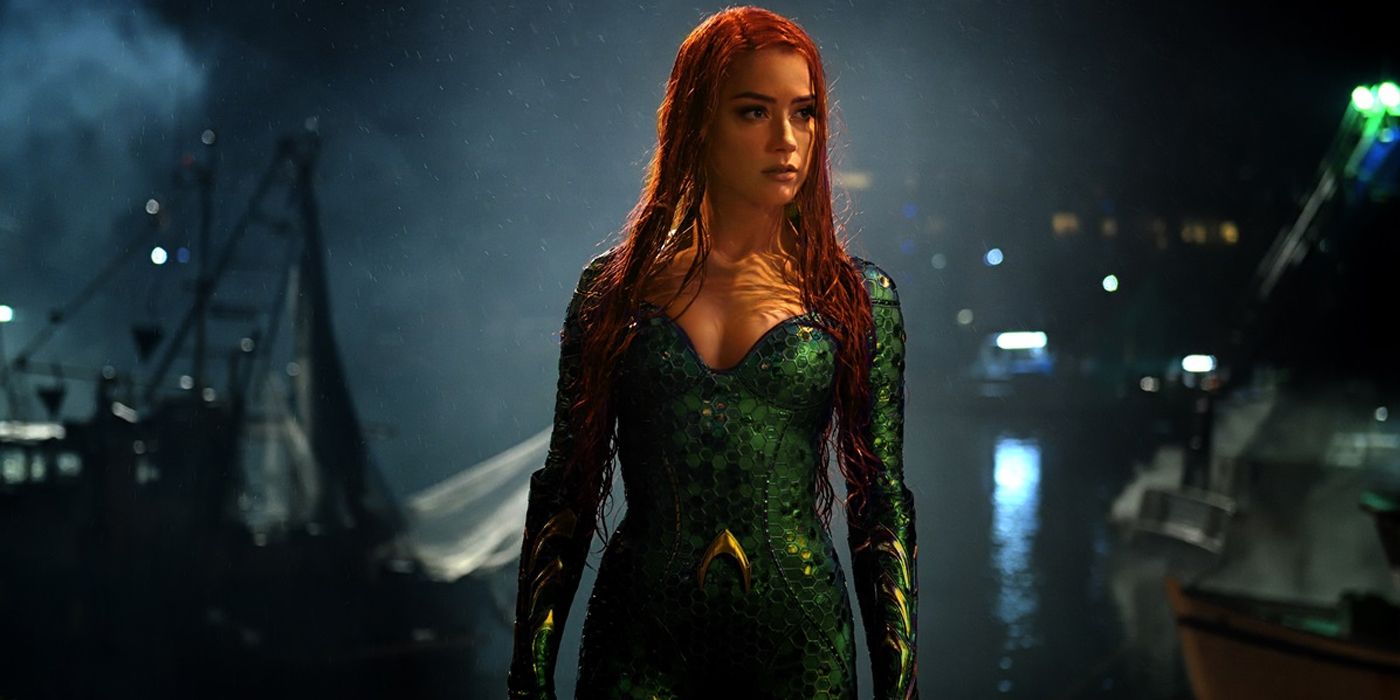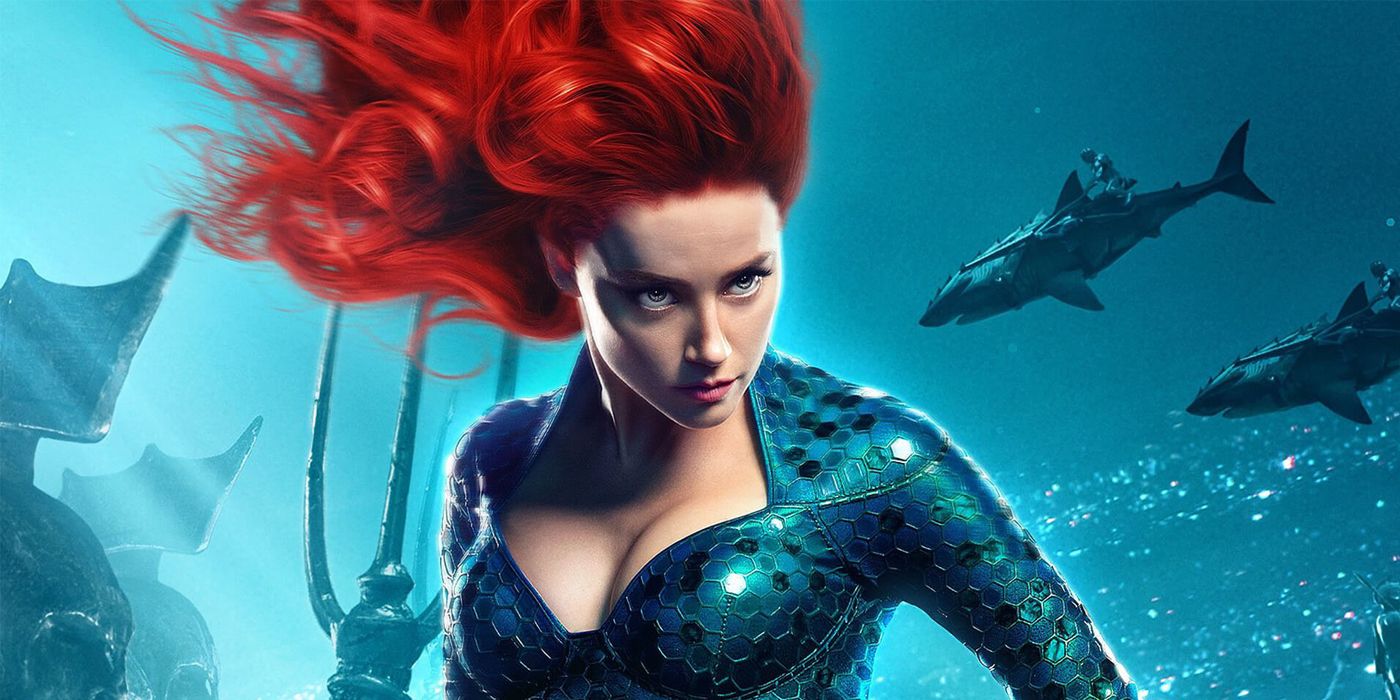

Even though Amber Heard was unfamiliar with comic books before taking on the role of Mera in Aquaman, she has since grown to appreciate the significant effect live-action heroes can have on audiences. In fact, she's specifically interested in how powerful the genre can be from a female perspective.
In Aquaman, Mera is the driving force behind Arthur Curry's (Jason Momoa) transition from a conflicted surface dweller to a classic DC hero - but that, in itself, is only scratching the surface. During a junket interview for Aquaman, Heard opened up about her enthusiasm towards inspiring female audiences, how she was originally hesitant about playing a comic book character, and what it means to tell a modern superhero story.
Related: Willem Dafoe Interview: Aquaman
Mera's this rebel warrior who really gets the ball rolling in this movie. What was it that attracted you - from the comics and the script - to this character?
I think I'm really lucky that I met this character in comic book form. I was totally unfamiliar with this world and comics and the whole superhero thing- just totally out of my wheelhouse. And, I think because of that, I didn't really know what to expect; I didn't really have an expectation for finding a place in it. I kind of thought maybe they called the wrong actress. I was like, "Are you sure?" [Laughs] And, when I opened the comic book and met her - where she lives - I realized why. It's a strong, badass, kickass, fierce warrior superhero in her own right. You know? She is the driving force in the script- I mean, of the story. She's the driving force of really making Aquaman Aquaman. She turns Arthur into Aquaman. And she figures everything out. She knows what is right, and she knows what is wrong, and she has willpower to execute it. And I love that about her. She - in the comic book, as a superhero - I met her in a scene where she's saving this coastal town with Aquaman, and they're leaving, and one of the townspeople mistakenly refers to her as- says, "Is that Aquawoman?" And she stops, and she's like, "I have my own name. My name is Mera. My own name."
That's awesome. That's great.
I was like, I love that. That's the kind of character that I can play, that's the kind of character I can get behind, and that's also the kind of character that we need now. We need more female superheroes, we need more women in this world, we need more kickass, powerful women who do things, that have complexity, that have agency, so we have more- so we can look up to and be engaged - our daughters, our sisters, our kids can see an also strong female. It's about time.

I agree. So, your relationship with Arthur in this movie- you guys are very different, but also very similar. Can you touch on that dynamic that you guys have?
Well, Arthur and Mera are, well, quite literally from different worlds. And, so, in coming from such different worlds, but being endowed with certain strengths, make them similar. They just- Arthur hasn't figured out what to do with it yet. He hasn't really figured out the best way to harness his power or strength, and Mera has. Mera's a formidable partner to him, because she already has figured out that journey. She's already become a superhero, and she knows what she wants. But then, on land, she's - excuse the pun - she is a fish out of water. And she's- she does need him in some respects. And, even though she saves him most of the time - not the other way around - she does rely on an organic relationship that's built out of mutual, earned respect and need and trust, and I like that it's earned. It feels more modern. It doesn't- you know, he's not saving the damsel, and then... it's like the basic formula, right? Save the woman- or save the girl, save the damsel and save the world, and then you're the hero. It's like, no, we are two counterparts, and I like that.
More: James Wan Interview: Aquaman
from ScreenRant - Feed https://ift.tt/2BrSw1u


0 Comments